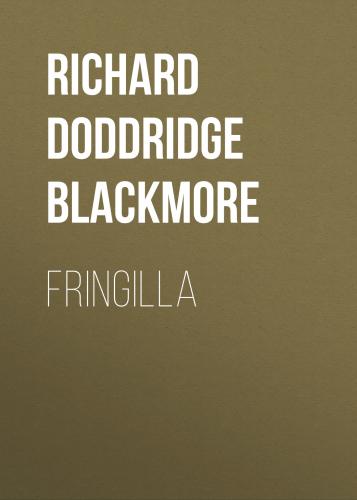As the maid grew womanish—
"Love, how hard have I been trying'
To believe the thing I wish!
"Thou hast taught me holy teachings,
Where to offer my beseechings,
Homage due to Heaven alone,
Not to ghosts, and graven stone,
"Thou hast shown me truth and freedom,
Love, and faith in One most High;
But thou hast not, Prince of Edom,
Taught me therewithal, to lie.
"Little cause had I for fretting,
None on earth to be regretting;
Till I saw thee, brave and kind;
And my heart undid my mind.
"Better, if the Gods had slain me,
When no difference could be;
Ere the joy had come to pain me,
And, alas, my dear one, thee!
"But shall my poor life throw shame on
Royal lineage of Amor?
Tis of Egypt's oldest strains;
Kingly blood flows in my veins.
"Thou hast seen; my faith is plighted,
That I will not fly my doom.
Honour is a flower unblighted,
Though the fates cut off its bloom.
"I have sent my last sun sleeping,
And I am ashamed of weeping.
God, my new God, give me grace
To be worthy of my race.
"Though this death our bodies sever,
Thou shalt find me there above;
Where I shall be learning ever,
To be worthy of thy love."
From his gaze she turned, to borrow
Pride's assistance against sorrow—
God vouchsafes that scanty loan,
When He taketh all our own.
Sudden thought of heaven's inspiring
Flashed through bold Duke Iram's heart;
Angels more than stand admiring,
When a man takes his own part.
'Tis the law the Lord hath taught us,
To undo what Satan wrought us;
To confound the foul fiend's plan,
With the manliness of man.
"Thou art right," he answered lowly,
As a youth should sneak a maid;
"Like thyself, thy word is holy;
Love is hate, if it degrade.
"But when thou hast well surrendered,
And thy sacrifice is tendered—
God do so, and more to me,
If I slay not, who slay thee!
"Abraham's God hath ne'er forsaken
Them who trust in Him alway.
Thy sweet life shall not be taken.
Rest, and calm thee, while I pray."
Like a little child, that kneeleth
To tell God whate'er he feeleth,
Bent the tall young warrior there,
And the palm-trees whispered prayer.
She, outworn with woe and weeping,
Shared that influence from above;
And the fear of death went sleeping
In the maiden faith and love.
Less the stormy water waileth,
E'en the human tumult faileth;
Stars their silent torches light,
To conduct the car of night
PART III
Lo, how bright-eyed morn awaketh
Tower and temple, nook and Nile;
How the sun exultant maketh
All the world return his smile!
O'er the dry sand, vapour twinkleth,
Like an eye when old age wrinkleth;
While, along the watered shore
Runs a river of gold ore.
Temple-front and court resemble
Mirrors swung in wavering light;
While the tapering columns tremble
At the view of their own height.
Marble shaft, and granite portal,
Statues of the Gods immortal
Quiver, with their figures bent,
In a liquid pediment
Thence the flood-leat followeth swiftly,
Where the peasant, spade in hand,
Guideth many a runnel deftly
Through his fruit and pasture-land;
Oft, the irriguous bank cross-slicing,
Plaited trickles he keeps enticing;
Till their gravelly gush he feels,
Overtaking his brown heels.
Life—that long hath born the test of
More than ours could bear, and live,
Springs anew, to make the best of
Every chance the Gods may give,
Doum-tree stiffeneth flagging feather;
Pate-leaves cease to cling together;
Citrons clear their welted rind;
